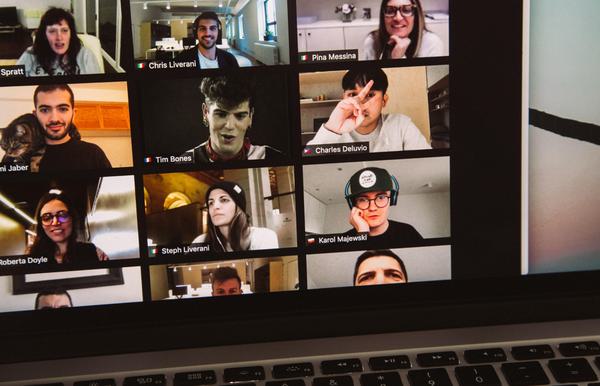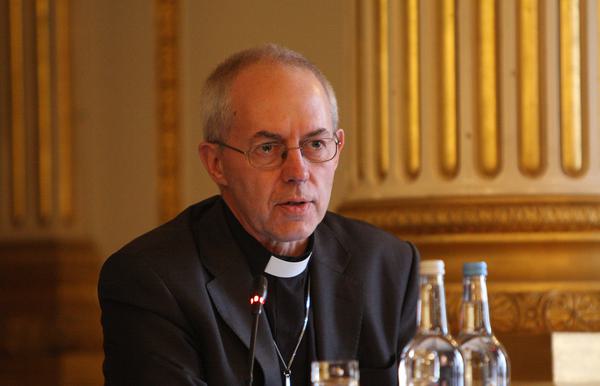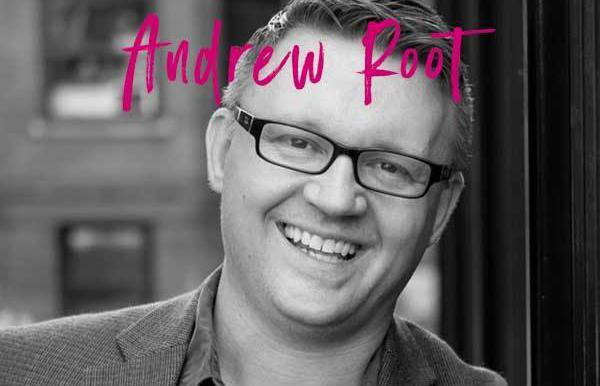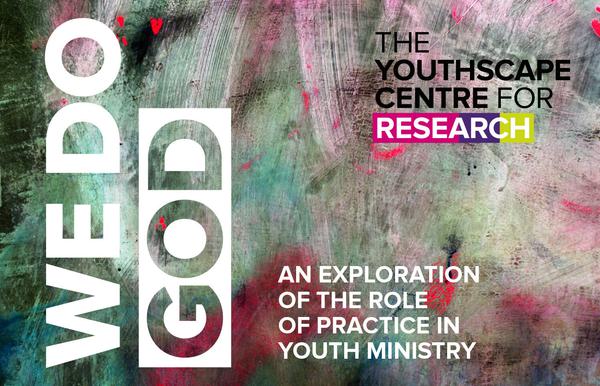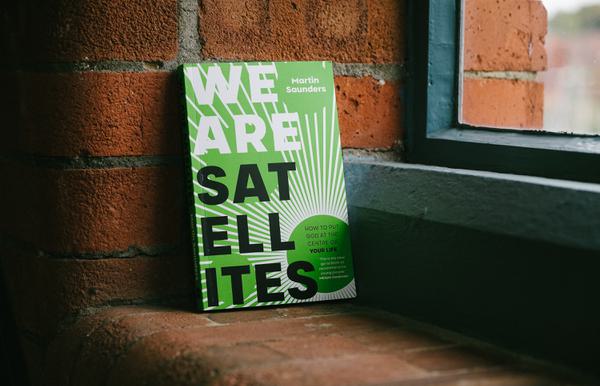Technology has brought both support and frustration in facing Covid-19 – how is it shaping us? Is the Church too easily infatuated with tech, innovation, and a desire to ‘keep up’?
Over the course of a few weeks, Youthscape’s Phoebe Hill and leading youth ministry thinker and theologian Andy Root sent each other a series of voice memos about theology and youth work in a pandemic. Here’s Part Two! Check out Part One of their conversation here.
"Everything sucks."
ANDY: Hey Phoebe, here’s my response back. I’m out walking my dog right now, so we are becoming really cool sophisticated people who can have these conversations while we are walking our dogs and things like that. And I’m just venting to you now, but 2020 sucks so bad. I am standing in the middle of a snow storm here in Minneapolis. We are a place that gets a lot of snow. But usually six weeks from now. So this is going to break the record for the most snow in October, and it’s so depressing. It’s so much harder to walk my dog when I have to walk through fields of snow. And I have to snow blow my driveway in a minute. So it just blows. So I’m venting to you about how much everything sucks. But thanks for your voice memo to take my mind off of that. I resonate so much with everything you said, totally and completely. I’m sure we can find some points of contention to make this more interesting.
You made a comment early on in the voice memo about these practices of displacement, about the way it will change our practices. You know, here we are displaced. And we do think that technology is saving us, and I do want to be aware with myself, I am in the American context where everything economically feels so fraught. Like healthcare system, the economy and we are being told right now that if one politician or one candidate doesn’t win the election then the other candidate is going to ruin the economy. I’m thankful that Zoom and digital technology has allowed me to keep my job. Or will at least give my school a much longer runway than it would if none of this had existed. If this had of happened in 1995 or even 2005 how different it would have been. So I’m thankful for that.
At the same time, I’m totally with you that this is going to change us fundamentally and there is something theologically at stake. You talked about your own experience for example, and how people can actually use those digital tools to actually opt out of having to – in some ways, confront their own finitude, by having to confront your own humanity. And I think that’s a really fascinating thought.
“The way late modernity works, the highest good is to become singular. So that’s the highest pursuit we look for…to become this singularly interesting person… [in a pandemic] now you are just kind of completely pulled into yourself, what does that do?”
I’m thinking about how for both of us, prayer has been a significant piece inside of this. And I wonder if one of the things we would recommend to pastors and youth workers is not to try to replicate spaces, but that there needs to be a whole recreation of spaces. Maybe there’s a way to help them think about which kind of practices can stand up over and against the displacement of the technology. And maybe none of them can completely, but it does feel like prayer has this kind of way. Maybe it’s because at its best prayer is a way of in some way relativizing yourself, that you need to get out of your own way. And maybe it is because at its best you close your eyes! So you are not watching yourself perform. And it actually is a kind of awkward social activity if you watch yourself pray, that you do tend to take your eyes off yourself in the performance element of that. So those would just be some interesting things for us to encourage youth workers with as they do stuff on zoom. Are there certain practices, maybe historical ones or others, which do that?
The singular self
Which connects with two other thoughts I had. I’m walking through snow, and it makes me feel like I’m really out of shape right now. So if I have a heart attack you will be the last person to hear my voice. That was a really terribly dire thing to say… I’m going to be ok I think. So I have a stack of books to read for a project I’m going to be working on that I feel is going to be important, but Meister Eckhart, in his thought and sermons, I’m going to read a tonne of stuff and see, but he has a certain kind of reconstituting of the self, and allowing the self to go into a void, and I wonder if that could speak to our time in some ways. In some ways I think it would be really offensive to people, because we also live in a time of identity politics where if you tell a self to disappear you do violence to that self, especially if that self has experienced forms of violence, which is very true. But there is also an utter obsession with the self.
There’s another German theologian called Reickwitz who wrote a book called Society as a Singularity which is fascinating. His basic point is that the way late modernity works, the highest good is to become singular. So that’s the highest pursuit we look for. So this obsession with the self to become this singularly interesting person, the singularly unique person. It’s fascinating to think about within this. So when you take a society’s highest good of being this unique individual, and kind of curating this presentation of being a unique individual, and then you turn to a pandemic where you are displaced from even certain practices that can kind of relativise you – such as being on the tube and being around people who don’t care about you – now you are just kind of completely pulled into yourself in some ways, what does that do? And how do we think of young people as growing up in a time where to be a singular person and to receive recognition for your singularity or your pursuit of singularity becomes a really high good?
"I have a joke in one of my presentations that if you are speaking with a bunch of pastors and you insult the Bible they think you’re really cool, but if you insult Twitter they stab you in the hallway."
Anyhow, really great talks. When someone asks you about technology – I don’t know if you feel this way – I always worry that I have hesitations, and so there’s a certain way that technology becomes the new religion for a lot of people, particularly younger pastors and ministry folks. I have a joke in one of my presentations that if you are speaking with a bunch of pastors and you insult the Bible they think you’re really cool, but if you insult Twitter they stab you in the hallway. So I’m glad that we are on the same page and there will be no stabbing in the hallway in our conversations. So I guess tag – you’re it. And I’m going to go and get my snow blower out and be super depressed.
PHOEBE: Hello again, thanks for your message. I’m very pleased that you didn't die! I'm assuming you didn't die, and that this hasn't been sent from beyond the grave. I definitely resonate with what you said about technology as well in terms of people's reactions to anything that isn't overly positive about technology and the sense of like, ‘how dare you critique technology?’. I've definitely found that in the past when I've written things about technology or questioned whether it's having a detrimental impact, the Twitterati comes out. I feel like those pieces have been the most controversial pieces I’ve written. It's just very interesting. I feel like there's this narrative about ‘the Church has always been behind culture’, you know, ‘it's always been slow to respond, always been slow to adapt, we need to be different, we need to embrace technology, we need to embrace the digital life, we need to be ahead of the curve this time’. And lots of talk about the printing press. The printing press always seems to be the technological development that is talked about. It's hard to tackle that really, that sense of hostility to any anything that isn't overly positive or this wide-scale belief that we need to embrace technology. I think what you said about there being something theologically at stake feels so true. It’s ultimately about what it means to be human isn't it, and there is something about our fundamental humanity that is at stake, which is a theological question. But it’s broader than just where God is present, but actually what is digital technology specifically doing to our humanity?
"There's this narrative about ‘the Church has always been behind culture...we need to be ahead of the curve this time.' [But] it's ultimately about what it means to be human...what is digital technology specifically doing to our humanity?"
The other element of my working theory - thank you for humouring me on that! – is that when people talk about technology and young people, it tends to focus on ‘how many hours is someone spending doing gaming?’ and ‘how is their mental health affected?’ – it’s kind of within quite a small frame. It's like ‘ok you do x number of hours of social media’ and that equals 20 per cent increase in mental health issues. It’s within the lens of technological use.
I guess the other element of displacement for me when it comes to what's theologically at stake, and our fundamental humanity, is that if a young person is spending six hours gaming, what has been displaced from their life on account of that time spent gaming? What are they not doing that they would have historically done that actually is fundamental to their humanity? So things like face-to-face interaction – has that been displaced by online gaming and what might the lack of that interaction actually mean for what it means to be human? Because there is something deep within us that is foundational to humanity about the face-to-face interaction and if that's not happening then what does that mean? So that feels like a really important question, and maybe it’s a way of framing this whole conversation around technology actually, what is theologically at stake? Because it's not necessarily saying ‘technology is bad, we shouldn't do it, we shouldn't be online’. But just that sense of questioning in as objective a sense as we can, and what might the ramifications be.

Who tells the time?
ANDY: There is this sense that the Church is behind and needs to catch up, and I don't know that that's the right narrative. The printing press is always brought up as the example, but there’s a great book called Brand Luther and it’s really about how Luther, and around Wittenberg, basically brought about a revolution in printing and brought printing businesses into big time businesses. How he was a brand unto himself. So it’s just not really right to say that the Church has always been behind. The sect that became Protestant were really kind of right on point with the printing press and that new technology. Maybe that’s part of our problem too, that maybe we don’t know that history but feel that maybe we can do that again with the internet.
One of the things I’ve been working on for volume 3 of the secular age series is this sense that there’s always someone who keeps time for us. As human beings historically, contingent human beings who are in time, you need somebody or some larger institution – some kind of collective - that keeps time. For most of western history that was the Church. It was the Church’s job to keep time. Almost quite literally the monk’s body kept time for the rest of the village and the rest of society, and of course Mass kept time. And when clocks came along they were put on churches but there were other ways - you can see all over Italy ways of keeping time connected to church buildings. So time in the sense of the day but also of the year with liturgical calendars and things like that. But with modernity, and one of its big revolutions, is to throw off and to say that it doesn’t want the Church to keep time anymore. And so the state has kept time, and we had our own mini revolution against that in the late sixties in the western world.
"That really is a Silicon Valley view. There is an assertion that goes through all of our neoliberal economies that says you need to innovate or you are going to die. And you need to innovate tomorrow...it isn’t that different than the Church shouting ‘convert or die’.”
It’s a longer story but the interesting thing is that Silicon Valley now keeps time for us. There is a way that it is just as oppressive in some ways. So this is what I’m picking up when people are saying that the Church is so behind and we need to catch up – that really is a Silicon Valley view. That controls technology, that thinks that the most important thing are disruptive innovations that throw off the old for the new. There is an assertion that goes through all of our neoliberal economies that says you need to innovate or you are going to die. And you need to innovate tomorrow. And the only collectives – I mean it starts with businesses – the only businesses that will survive, and that spreads into schools and other non-commercial entities, the only ones that will survive are the ones that can quickly innovate. So you have to disrupt very quickly and live in a state of insecurity, you have to go fast.
So when pastors say things like ‘oh the Church can’t be behind, we have to change, change, change’ – we hear that and we feel that it makes sense because we live under the tyranny or at least the rule of Silicon Valley’s view of time as this accelerated time. And it isn’t that different than the Church shouting ‘convert or die’. Silicon Valley essentially shouts to all of us as individuals as well as institutions – you better change or you are going to die. The kind of change you better to do has to model us, and we have the tools to help you change, and we have a view of time that you should take in, that it’s always accelerating and going faster, you are always trying to get more action out of each unit of time. So time becomes stripped of any other sacred kind of meaning. So this is a little bit too radical orthodox, and I don’t want to be venerating a medieval Christendom, but there is something similar where modernity always hides the fact that it has its own tyrannical rule, in commerce and its views of freedom aren’t always forms of freedom. So there’s something to think about.
What do you think? You can join the discussion on social media via @Youthscape , @DrPhoebeHill , @RootAndrew , and @YWResearch. Keep an eye on Research News for the final part of this conversation from Andy and Phoebe!





